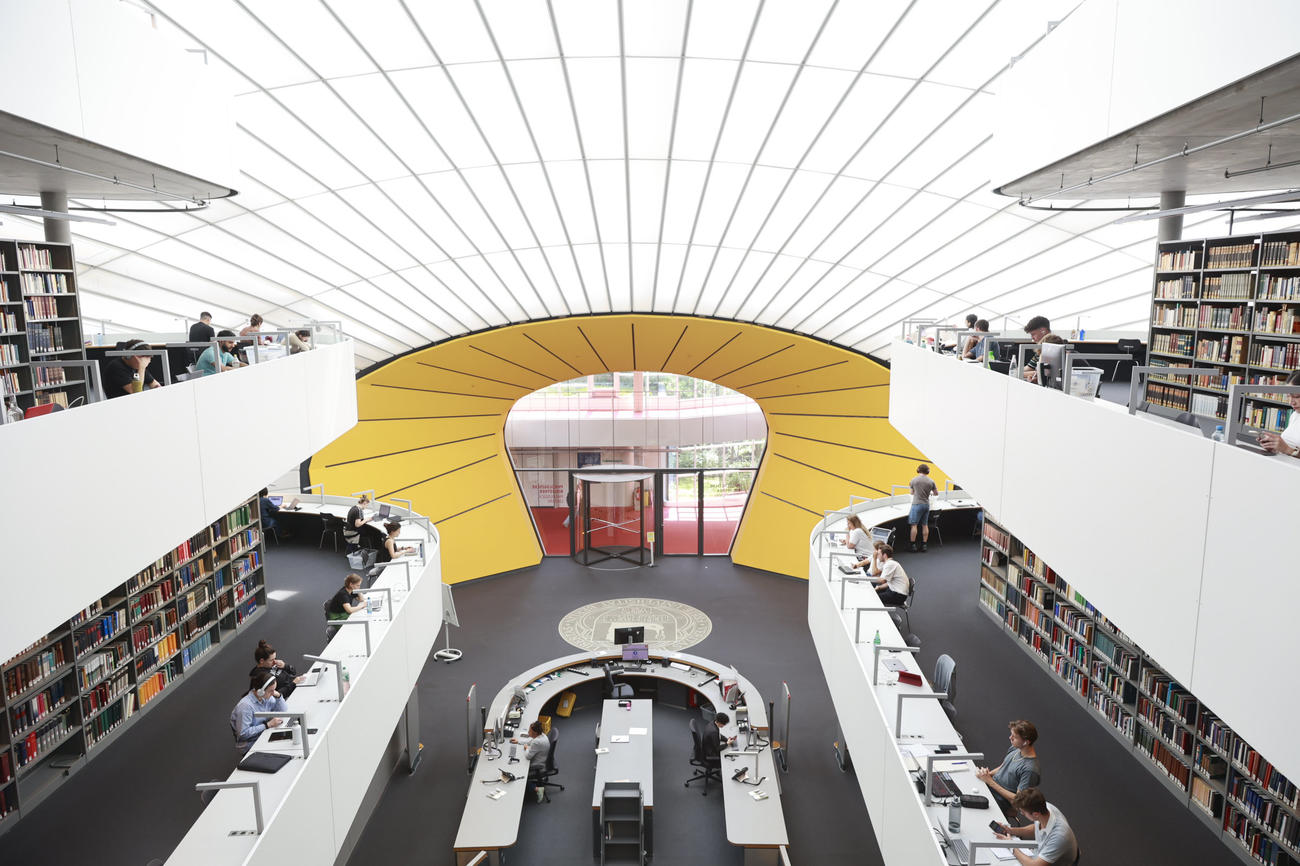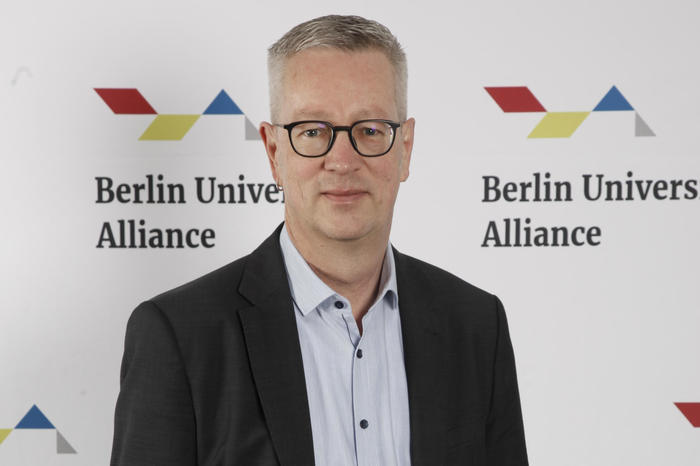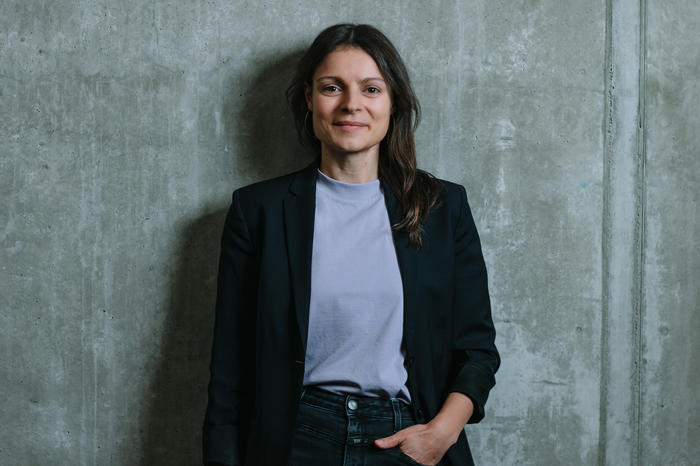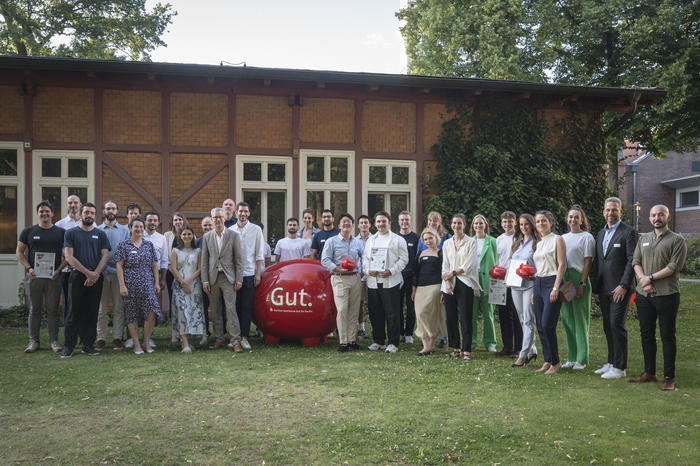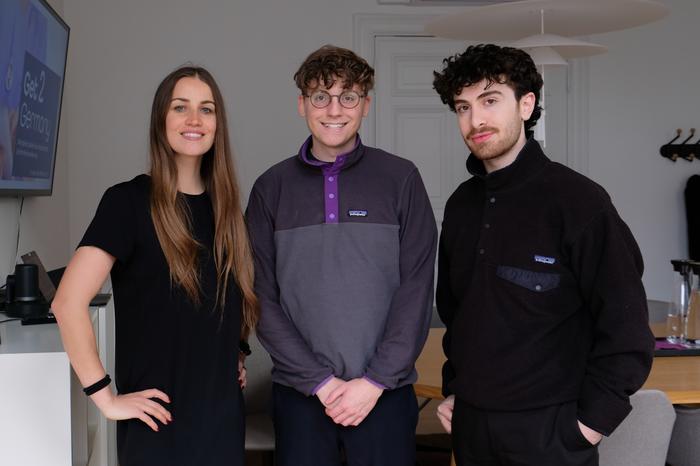EXIST Startup Factories – innovation through collaboration
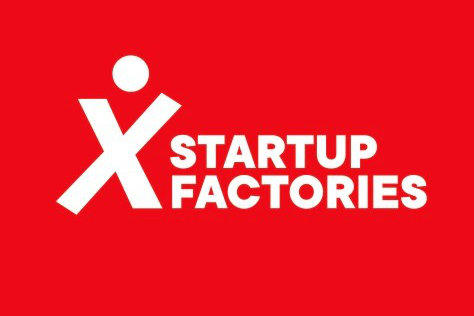
Weitere Informationen zu den EXIST Startup Factories
How BUA’s mission impacts the metropolitan region
“Applying research in a targeted manner–that is exactly what UNITE stands for. With the Berlin-Brandenburg nucleus, we are creating a powerful platform that will unleash the full potential of the Berlin-Brandenburg science region. UNITE is a strategic innovation tool that brings together cutting-edge research, science-based startups, practice-oriented universities, non-university institutes, and innovative companies in a shared ecosystem,” says Prof. Günter M. Ziegler, spokesperson for the Berlin University Alliance, President of Freie Universität Berlin, and Chairman of UNITE Science e.V.
Strategic matching with relevant players is an essential aspect
“At UNITE, we systematically translate scientific findings into social impact in a targeted manner. That means we identify needs in business and society, link them to current research topics, and work with strong partners to develop viable, innovative solutions. In this way, we are making an active contribution to the future viability of our region—and far beyond.
A decisive impetus for the conception and development of UNITE came from the Science & Start-ups initiative—the startup centers of the four partners in the Berlin University Alliance. They recognized early on how important it is to combine scientific excellence with entrepreneurial thinking. From the outset, UNITE was therefore established as a practice-based, interdisciplinary, and growth-oriented organization.
By founding UNITE Science e.V., we are now consolidating our activities and creating professional structures to strategically develop the innovative strength of our region. We connect cutting-edge research with applied science, promote new forms of cooperation, support transfer pathways, and specifically strengthen science-based startups.
UNITE is a future-oriented lab for the science metropolis of Berlin—a place where research is put into practice, innovations are created, and new connections between science, business, and society grow.
Our message is clear: investments in science are investments in the future. UNITE demonstrates how cutting-edge research can drive innovation—for a resilient economy, a sustainable society, and a high quality of life in the Berlin-Brandenburg region.”
Laura Möller: UNITE for Startups
Laura Möller is director of AI NATION's Berlin office. K.I.E.Z., the Artificial Intelligence Entrepreneurship Center of Science & Startups, the association of startup services of Berlin's universities and Charité - Universitätsmedizin, has also joined the new national platform for AI startups. Möller also shapes Berlin's knowledge and innovation space as CEO of UNITE. Möller is playing a key role in driving forward the establishment of the largest start-up center for science-based startups in Europe, which is currently being created in Berlin through a concentrated effort involving science, politics, and business.
“I am driven by the goal of transforming the immense potential of Berlin’s research institutions into successful start-ups,” says Möller about her two roles. As a former venture capital investor at Burda Principal Investments and IBB Ventures, Möller brings extensive expertise and an extensive network to her work for UNITE and K.I.E.Z. She increasingly focuses on the transfer of knowledge for AI and deep tech on growth, to establish Berlin as a permanent innovation location. The business graduate completed her master’s degree in European Studies at the Free University of Berlin, Humboldt University of Berlin and the Technical University of Berlin. As an investor, Laura Möller was a member of several company advisory boards. In January 2024, she was appointed to the board of directors of KI Park and in November 2024 to the impact board of trustees of Ostwerk. Manager Magazin included her in its list of the 23 most important women in AI in Germany.
By way of UNITE, partners from business, society and science – including the partners of the Berlin University Alliance – are jointly offering internationally leading innovation and start-up services. A high degree of digitization ensures the resource-efficient mobilization of the entrepreneurial talents, innovation and start-up potential of the partners, efficient networking by ecosystem stakeholders and the data-driven further development of the center. Entrepreneurial structures enable speed, a willingness to take risks and the creation of space for development. In this context, internationality, diversity and corporate responsibility are drivers and success factors. This focuses on seven units: Talents, Education, Programs, Funding, Infrastructure, Marketing and Think Tank.
A springboard to self-employment: the Startup Award from Berliner Sparkasse and Science & Startups
Presentation of the Startup Award from Science & Startups and Berliner Sparkasse
Image Credit: Bernd Wannenmacher
Transfer promoted on a large and small scale
This year's winners of the Startup Award were honored on July 3 in the festive atmosphere of the Berliner Sparkasse event venue on Lake Wannsee. In front of an audience of over 200 guests, Berliner Sparkasse and Science & Startups honored three promising spin-offs whose innovative strength and entrepreneurial vision impressed the jury. Get2Germany won the main prize of EUR 12,000 as well as the audience award. The startup helps foreign healthcare professionals integrate into the German labor market. Second prize went to AdaptX Systems, which aims to set new standards with sustainable and efficient cooling solutions for machines. In third place was Acemate, a startup that developed an AI-supported learning platform for students.
The Startup Award showcases Berlin’s diversity and innovative strength as a hub for science and startups, as well as the close links between research and entrepreneurship—and makes it easier for new entrepreneurs from the scientific community to strike out on their own.
“Get2Germany – Digital support for the professional recognition of foreign health professionals
The founding team of Get2Germany: Johanna Engelhardt, Dr. med. René Rheimann and Pasha Alidadi (from left to right)
Image Credit: Pia Schnarkowski
The German healthcare system will face a shortage of about 1.8 million skilled workers by 2035. At the same time, many qualified doctors and nurses from abroad are currently failing due to the hurdles of a fragmented and lengthy recognition process. The consequences: frustrated talent and an increasingly strained supply situation in Germany. The start-up Get2Germany, funded by Science & Start-ups, the Berlin University Alliance’s start-up service, wants to make it much easier for international health professionals to integrate in Germany. The start-up is developing a platform that digitally maps the professional recognition process for foreign professionals in Germany – from the first orientation step to integration in the German labor market.
In addition to medical professionals, Get2Germany also offers potential employers such as doctors’ clinics, hospitals and care facilities the opportunity to provide more efficient support to their future employees. To achieve this, the platform combines support services, such as automated document verification, translation services, targeted exam preparation and community elements.
The founding team consists of Dr. med. René Rheimann (CEO, studied medicine at the Charité – Universitätsmedizin Berlin, the joint medical faculty of the Free University of Berlin and Humboldt University Berlin), Johanna Engelhardt (CSO, completed her Master of Business Marketing at the Free University Berlin) and Pasha Alidadi (CTO, contributes technological expertise as a business information scientist with a master’s degree from the Technical University of Berlin.
Get2Germany is currently in the product development and market entry phase. Pilot users and important partnerships have been established. “Science & Start-ups provided us with crucial support as part of the Berlin Start-up Scholarship – through financing, mentoring and a strong network,” says Dr. med. René Rheimann, CEO of Get2Germany. The exchange in the “Healthcare x Prevention” cluster, which is part of Science & Start-ups at Freie Universität Berlin, was particularly important.
“We realized that we can achieve even more together”
Volker Hofmann is a member of the management team of Science & Start-ups, the network of start-up services in the Berlin University Alliance. In the interview, Hofmann explains what makes start-up funding in the Excellence Alliance so special.
Mr. Hofmann, Science & Start-ups has been recognized by the Financial Times, Statista and Sifted as one of Europe's leading start-up hubs in 2025 – that’s a great success! What does this recognition mean to you personally and to the Joint Start-up Service of the BUA partners?
The award recognizes the innovative strength of our spin-offs, our students, researchers and alumni! The incredible Science & Start-ups team deserves recognition for rendering excellent services for founders, at all times aimed at becoming even better. For me personally, the award is personal confirmation that we are on the right track with our “Better together” strategy.
What makes Science & Start-ups so special compared to other start-up services?
A joint start-up service for three of the most entrepreneurial universities in Germany is a real first. It is remarkable that this vision emerged from the individual start-up services. We have realized that we can achieve even more together and as a result, we are also more competitive, nationally and internationally. According to the current ranking, we are ranked first in Berlin, sixth in Germany and nineteenth in Europe. What is important here is that this applies to all start-up hubs, not just those with a scientific focus! Of course, we now also want to be among the top 10 in Europe.
What are your most important support instruments?
We tailor our offers to the needs of our target groups and the progress made in the start-up process. We offer the full spectrum of services, from activating and training entrepreneurial talent, to supporting the development and financing of the business model, providing co-working spaces and labs, to networking with investors and initial support for internationalization. All phases are accompanied by start-up consultants, coaches and mentors who provide intensive support to the teams. In recent years, we have also increasingly built up topic-related support structures, such as the Artificial Intelligence Entrepreneurship Center (K.I.E.Z.), the largest German accelerator for AI start-ups from the scientific community. We are also placing a greater focus on the digitalization of our services. By way of match’em, for example, we have created a cross-university digital platform to facilitate the search for co-founders, among other things.
What do successful start-ups bring to universities and the capital region?
Our start-ups are one of the city’s economic drivers. They create new, future-proof jobs and increase tax revenues. For example, one study calculated that for the EXIST start-up grant, one of our most important funding programs, almost six euros of additional value are generated for every euro invested. It is important that the added value from start-ups is reinvested in research and teaching. Because strong universities are the basis for a vibrant start-up scene. In addition to the economic effects for Berlin, spin-offs also benefit the universities themselves. This includes career opportunities for graduates, who are enthusiastic about our start-ups early on through internships in our start-ups. Over time, many start-ups also grow into research partners. And finally, spin-offs also offer real added value for science communication: while as universities, on occasion we face the challenge of reaching the general public with topics in basic research, which our start-ups find much easier. After all, they develop solutions for specific everyday problems based on science. One example is the Aaron.AI start-up, which helps to arrange doctor’s appointments.
How is Science & Start-ups financed?
In the early phases of establishment, in the area of entrepreneurial activation and training, funding usually comes from the public sector, i.e. the universities themselves or state and federal funds. In the later phases, especially the start-up, companies and investors also make a greater financial contribution. One example of this is the annual Berliner Sparkasse Start-Up Prize.
What is your most important advice to students and researchers who want to start a business?
Unrestrained networking and 15-minute initial consultation can be booked directly with us: www.science-start-ups.berlin/kontakt.

